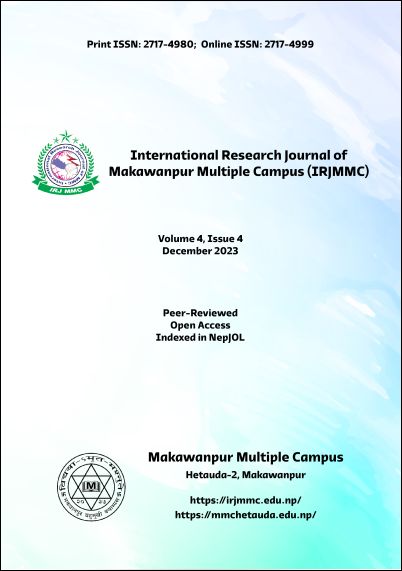The Impact of Demographic Factors on Tax Compliance: Evidence from Hetauda
DOI:
https://doi.org/10.3126/irjmmc.v4i4.61281Keywords:
Tax Compliance, Attitude, Demographic Factors, Behavior, EconomyAbstract
This article explores the impact of demographic factors on tax compliance behavior in Nepal collected from Hetauda Sub- Metropolitan City. The objective of this study is to investigate the impact of demographic factors on tax compliance. Focus of this study is to investigate what actually happens in the economy with the low tax compliance ratio in Nepal, which results in unexpected low tax revenue day by day. To this end, the author used quantitative research approach only. The target population of the study was taxpayers of the Hetauda city categorized in both private and public job and business. The primary data were collected through survey questionnaire from 300 selected samples to meet the target population. Binary logistic regression model and Pearson Correlation Matrix were employed to analyse the data through SPSS and EViews. The result of this study has shown the demographic factors incorporated with attitude variables under four different model. The impact of the demographic factors on tax compliance is mixed in nature. Some demographic factors are inversely related to tax compliance and vice-versa. A low tax compliance problem is related to low tax revenue of a particular country. The beauty of this study is to bridge the knowledge gap of emerging issue of the tax compliance behavior in several ways.
Downloads
Downloads
Published
How to Cite
Issue
Section
License
Copyright (c) 2023 Bhojraj Dhakal, Krishna Prasad Paudel, Pabitra Pathak

This work is licensed under a Creative Commons Attribution-NonCommercial 4.0 International License.
This license enables reusers to distribute, remix, adapt, and build upon the material in any medium or format for noncommercial purposes only, and only so long as attribution is given to the creator.

